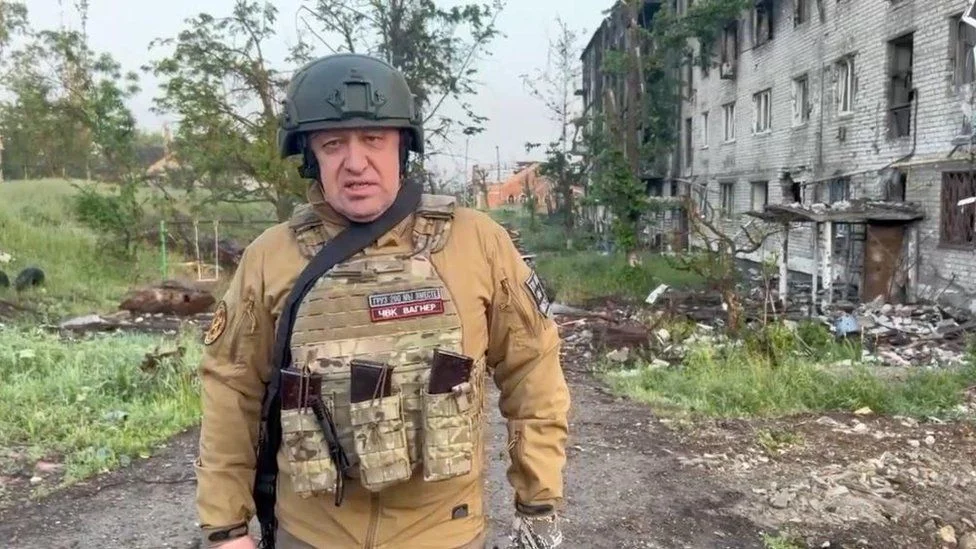Yevgeny Prigozhin, the enigmatic founder of the Russian mercenary group Wagner, has captured international attention once again due to his involvement in a recent plane crash north of Moscow. As Russia’s civil aviation authority confirms his presence on the ill-fated flight, it’s worth delving into the significant details that mark Prigozhin’s controversial journey.
Rise to Prominence and Wagner’s Role
Prigozhin, aged 62, rose to prominence following Russia’s invasion of Ukraine in February 2022. His Wagner Group, composed of fighters including many recruited from prisons, played a pivotal role in the Russian offensive on Bakhmut – a battle that would become one of the longest and bloodiest of the conflict.
Using social media as his platform, Prigozhin celebrated Wagner’s achievements while engaging in a bitter feud with the military establishment. He accused them of incompetence and even treason, amplifying his influence on the public perception of the conflict.
The Rostov-on-Don Mutiny
June witnessed Prigozhin’s leadership in a daring mutiny, during which Wagner forces took control of Rostov-on-Don. They successfully downed multiple military helicopters, killing pilots, as they advanced towards Moscow. President Vladimir Putin swiftly condemned the act, deeming it treacherous and promising a stern response.
The crisis subsided with a compromise that saw Prigozhin and some fighters departing for Belarus to avert further bloodshed. In exchange, the Kremlin dropped the charges of armed mutiny against him.
Conflicting Reports and Apparent Escapes
The aftermath of the mutiny was marked by confusion. The Kremlin initially reported Prigozhin’s meeting with Putin, only for state TV to assert that an investigation against him was ongoing. Later, a video surfaced showing cash, passports, weapons, and other seized items from a raid on one of his properties.
Despite this, Prigozhin reappeared in St. Petersburg while a Russia-Africa summit was in progress, hinting at his elusive presence across continents. This week, he appeared in a video suggesting he was in Africa, underlining Wagner’s operations in various countries.
A Complex Journey: From Convict to Caterer
Born in St. Petersburg in 1961, Prigozhin’s life took a turn when he spent nearly a decade in Soviet prisons for offenses like robbery and fraud. Upon his release in 1990, he embraced a career as a caterer and restaurateur in his hometown. This period may have marked his initial connection with Putin, then a top aide in St. Petersburg.
Prigozhin leveraged these connections to secure major state contracts, earning him the moniker “Putin’s chef” for his work at Kremlin events. He later playfully referred to himself as “Putin’s butcher.”
The Wagner Group and International Controversy
In 2014, Prigozhin established Wagner, a private military company that deployed fighters to support Moscow’s allies in conflict zones like Syria, Libya, and the Central African Republic. The United States imposed sanctions on Wagner, accusing it of committing atrocities, a claim Prigozhin vehemently denied.
In addition to his military ventures, Prigozhin was linked to the Internet Research Agency, a company labeled a “troll farm” by Washington for its alleged interference in the 2016 US presidential election. In a surprising revelation in November 2022, he openly admitted to meddling in US elections and expressed willingness to do so again.
The recent plane crash involving Prigozhin has reignited discussions about his controversial persona, his influence on international conflicts, and the complex web of power and intrigue that surrounds him. As details emerge, the enigma surrounding Yevgeny Prigozhin only deepens.




